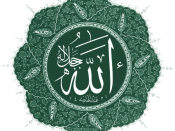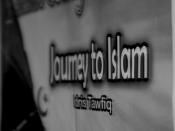The end of the Cold War and the demise of the Soviet communist empire have shown the dominance of liberal democracy and capitalism over all other possible alternatives. The emerging ``New World Order`` has been characterized by the collapse of communism and the global demand for democracy. Fukuyama even went as far as declaring the ``end of history``: `what we may be witnessing is not the end of the Cold War, or the passing of a particular period of postwar history, but the end of history as such: that is, the end point of mankind's ideological evolution and the universalisation of Western liberal democracy as the final form of human government.` (Fukuyama, 1989: 50) However, after the terrorist attacks of September 11, 2001, and indeed before that, the attention of many scholars and government officials has been directed towards the lack of democracy in the Islamic states and the reasons for it.
Many scholars while trying to explain the rationale why the Muslim world is not successful in the development of pluralism, liberalism and other democratic values `have concluded that it must have something to do with culture, and more particularly with Islam.` (Kramer, 1993: 2) The results of the Freedom House report in 2005 identified three Muslim countries as free, 20 states as partly free and 23 as not free at all. (Freedom in the world 2006) The table on Islam and democracy shows that democracy has not found a home in the region and the authoritarianism continues to be a strong force in Muslim domains. Here states with an Islamic majority comprise one in two of the world's authoritarian regimes.
Is the government Countries with an Non-Islamic
elected by Islamic majority countries
democratic means?
Yes 11 110
No 36 35
Total 47 145
(Adapted from Hague and...


